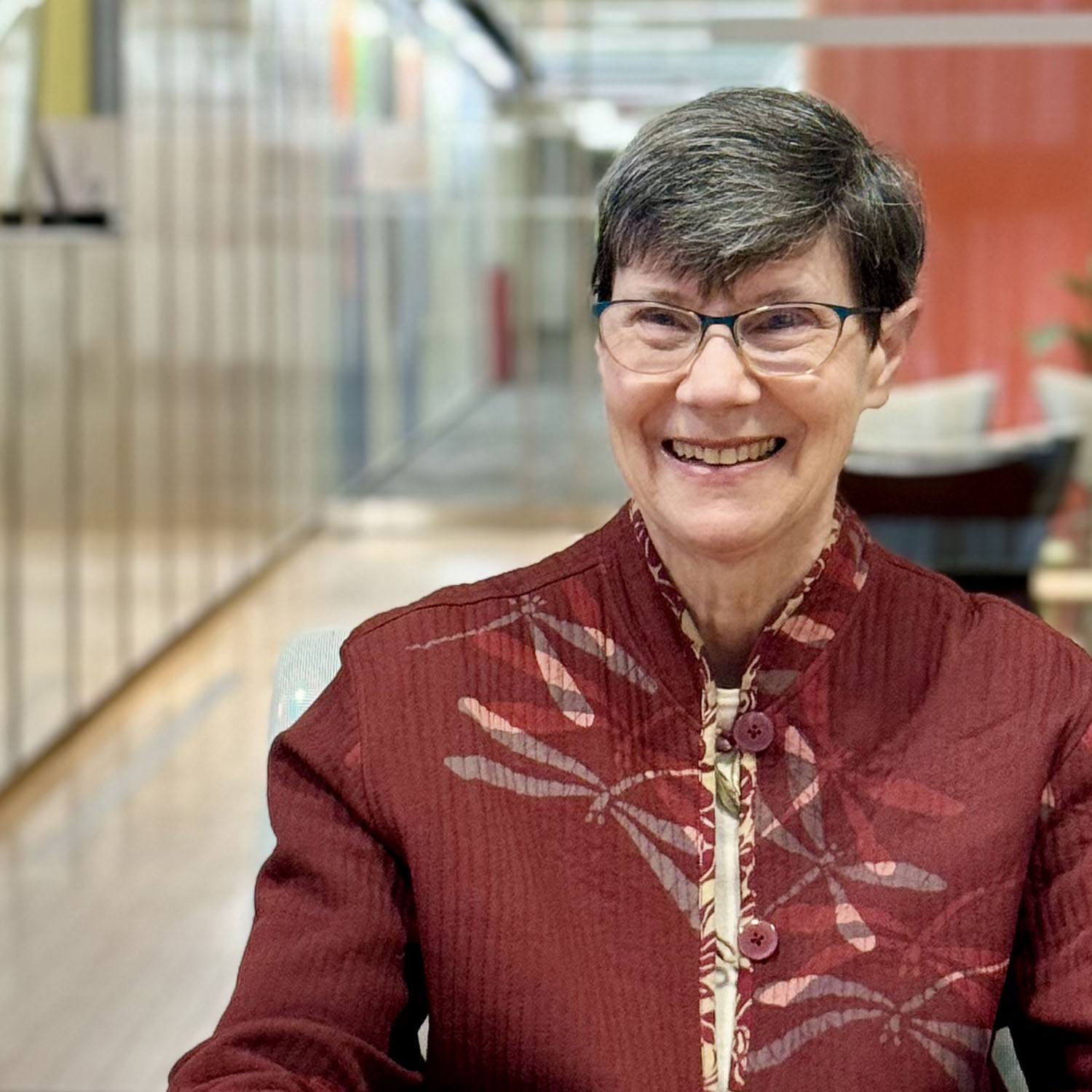A Whole Person Focus on Heart Disease
Director’s Page
Helene M. Langevin, M.D.
January 9, 2024
As we have explored factors that influence the health of the whole person, it has become increasingly evident that interrelationships—between different body organs and systems, between genetics and environment, and between the mind and body—are crucial in both health and disease. Even when we’re focusing on a single disease process, we need to consider multiple mechanisms and parts of the body, as well as people’s lifestyles and environments, to fully understand how best to prevent or manage it.
This emphasis on connections was a major theme of the 2023 Stephen E. Straus Distinguished Lecture in the Science of Complementary Therapies, presented by Ahmed Tawakol, M.D., of Massachusetts General Hospital and Harvard Medical School. In his lecture, Novel Insights Into Heart-Brain Interactions and Neurobiological Resilience, Dr. Tawakol discussed his pioneering research on the neural and immune mechanisms through which stress, lifestyle, and resilience influence the risk of cardiovascular disease.
Research has shown that psychosocial stress is a cardiovascular risk factor comparable in importance to hypertension, elevated lipid levels, smoking, or diabetes. The amount of stress that people are experiencing can be measured by imaging two areas of the brain—the prefrontal cortex and the amygdala. When we’re under stress, activity in the amygdala increases and that in the prefrontal cortex decreases. Over time, these changes lead to increases in heart disease risk. The ratio of amygdala to prefrontal cortex activity predicts subsequent heart disease events even after the effects of other risk factors are taken into account. This relationship is mediated by activity in the bone marrow and arterial inflammation.
Dr. Tawakol’s research has shown that individual differences exist in the way people’s brains respond to chronic stress. Some people have strong responses, but others are more neurobiologically resilient; their brain activity doesn’t change much during exposure to stressors. Part of this difference is genetic; people with higher polygenic risk scores for stress sensitivity have higher stress signals in the brain and higher cardiovascular risk. However, lifestyle factors also play a role. Physical activity is important; it enhances desirable activity in the prefrontal cortex. Stress reduction interventions can also be helpful; they have cardiovascular benefits above and beyond those of physical activity. And healthy sleep comes into play. Interactions have been demonstrated between sleep, the genetics of stress, and cardiovascular risk; people with higher stress sensitivity are more likely to have heart attacks if they are sleep deprived.
Much remains to be learned about the cardiovascular impact of stress and the effectiveness of specific interventions to ameliorate it. However, based on the knowledge available now, Dr. Tawakol suggested that individuals with higher cardiovascular risks and higher stress may especially benefit from stress reduction interventions, exercise, and getting enough sleep.
If you’re thinking about health goals for 2024, you may want to consider these three aspects of lifestyle—managing stress, being more active, and establishing healthy sleep patterns—as priorities for the year even if you’re not at high risk of cardiovascular disease. These habits aren’t just good for your heart; they also benefit your physical and mental health in many other ways. And unlike some medicines, they don’t have unpleasant side effects.
As always, it was an honor and a privilege for me to host the annual Straus Distinguished Lecture—the premier lecture at the National Center for Complementary and Integrative Health (NCCIH), named after our Center’s founding director. I’m very grateful to the Foundation for the National Institutes of Health and Bernard and Barbro Osher for their financial support of this lecture series, which provides a unique opportunity to bring in leading figures in science and medicine to speak on cutting-edge research topics related to complementary, integrative, and whole person health.
For More Information
This Is Your Heart on Stress (NIH Catalyst)
